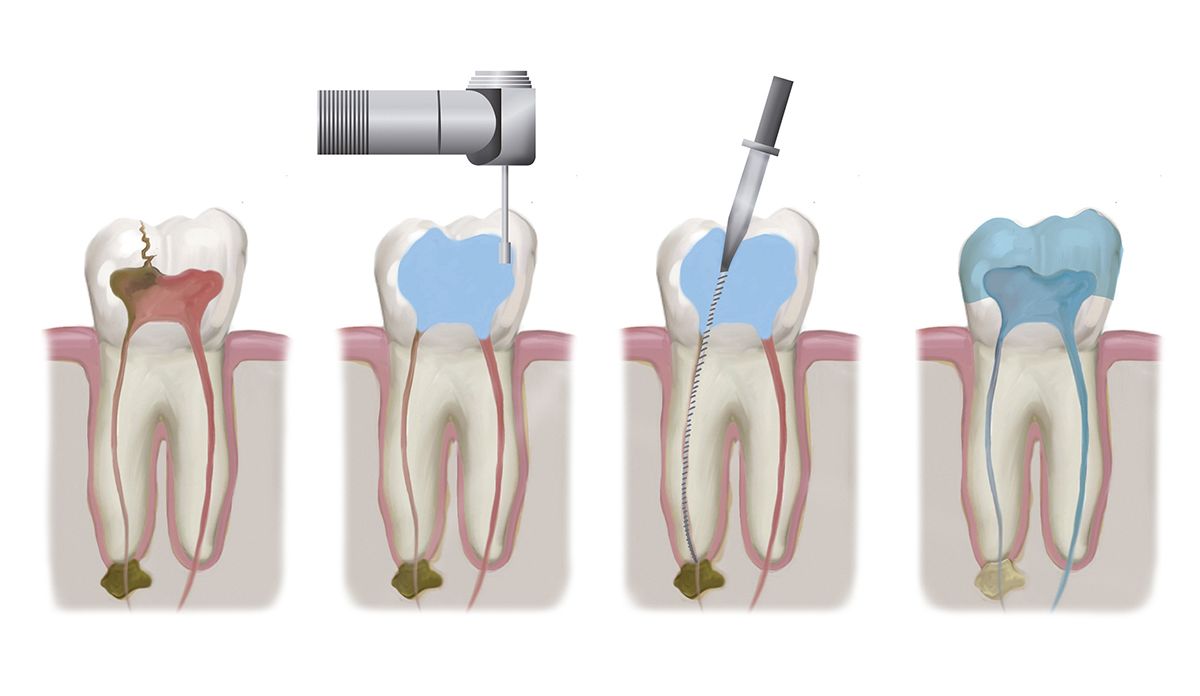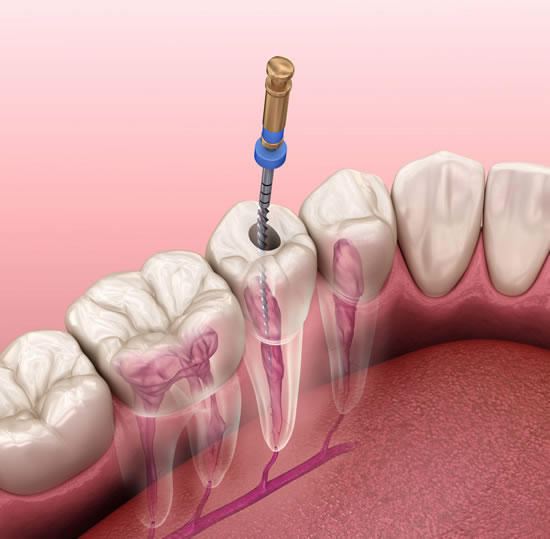Do I Have Sleep Apnea? This is a question that may have been lingering in your mind lately. Sleep apnea is a serious condition that can greatly impact your quality of life. If you suspect that you may have sleep apnea, it is important to seek medical attention and get a proper diagnosis.

Understanding Root Canals
When it comes to understanding root canals, it's essential to know what they are and why they might be necessary. A root canal is a dental procedure performed when the pulp inside your tooth becomes infected or damaged. This can happen due to deep decay, repeated dental procedures on the same tooth, cracks or chips in the tooth, or even trauma.
Root canals may have gained an undeserved reputation for being painful, but in reality, modern techniques and anesthesia make them relatively comfortable procedures for most patients. In fact, getting a root canal often brings much-needed relief from severe tooth pain.
Symptoms that Might Indicate the Need for a Root Canal
Experiencing dental pain can be quite distressing, and it's important to pay attention to any signs or symptoms that may indicate the need for a root canal. While only a qualified dentist can diagnose if you require this treatment, there are several common indicators to look out for.
- One of the most telltale signs is a persistent toothache or sensitivity to hot and cold temperatures. This discomfort often worsens when pressure is applied while chewing or biting down on food. Additionally, you might notice swelling in your gums near the affected tooth, which could be accompanied by tenderness or a small pimple-like bump.
- Another possible indicator is discoloration of the tooth. If you notice that one of your teeth has become darker than those surrounding it, this could suggest that the nerve inside the tooth is damaged and requires attention.
- In some cases, patients experience prolonged bad breath despite practicing good oral hygiene habits. This unpleasant odor may result from an infection deep within the pulp chamber of your tooth.

The Process of Getting a Root Canal
The process of getting a root canal may seem daunting, but it is actually a relatively straightforward procedure that can help save your tooth and alleviate pain. The dentist will administer local anesthesia to numb the area around the affected tooth. This ensures that you won't feel any discomfort during the procedure. Once you are numb, the dentist will create a small opening in the tooth to access the pulp chamber and root canals.
Using specialized tools, they will carefully remove infected or damaged tissue from inside the tooth. The pulp chamber and canals are then thoroughly cleaned and disinfected to ensure all bacteria are eliminated. In some cases, medication may be placed inside the tooth to treat any infection further. Once clean, the dentist will fill and seal the canals with a rubber-like material called gutta-percha. This helps prevent reinfection by sealing off any spaces where bacteria could enter. After filling, a temporary filling or crown may be placed on top of the tooth until a permanent restoration can be made.
In some instances, additional appointments may be necessary for complex cases or if there is an active infection that needs more time to heal before completing treatment.
Post-Procedure Care and Recovery Tips
After undergoing a root canal procedure, it's important to take good care of your teeth and gums to ensure a smooth recovery. Here are some post-procedure care tips to help you heal properly:
- Take it easy: Avoid strenuous activities for the first few days after the root canal. Resting will give your body time to recover and reduce any potential discomfort.
- Follow proper oral hygiene: Continue brushing your teeth twice a day, but be gentle around the treated tooth. Use a soft-bristled brush and avoid aggressive scrubbing.
- Rinse with saltwater: To minimize swelling and keep the area clean, rinse your mouth with warm saltwater several times a day.
- Avoid hard or sticky foods: Stick to softer foods that won't put unnecessary pressure on the treated tooth or dislodge any temporary fillings or crowns.
- Manage pain and swelling: Over-the-counter pain relievers can help alleviate any discomfort during the healing process, but always follow dosage instructions carefully.
- Attend follow-up appointments: Be sure to schedule and attend any recommended follow-up visits with your dentist to monitor progress and address any concerns.
Remember, everybody's healing process is different, so if you experience persistent pain, excessive bleeding, or other unusual symptoms after your root canal procedure, don't hesitate to contact your dentist for guidance.

Frequently Asked Questions
1. How do I know if I need a root canal?
Some common symptoms that may indicate the need for a root canal include persistent toothache, sensitivity to hot or cold foods/drinks, swollen gums around the affected tooth, darkening of the tooth color, and the presence of an abscess.
2. Is getting a root canal painful?
Contrary to popular belief, getting a root canal is not as painful as people often think. With modern advancements in dentistry and local anesthesia techniques, most patients experience minimal discomfort during the procedure. In fact, many report feeling relief from their initial pain after having a successful root canal.
3. How long does a typical root canal procedure take?
The duration of a root canal procedure can vary depending on various factors, such as the location of the affected tooth and its complexity. However, on average, you can expect the treatment to be completed within one to two hours per session.
4. Will my tooth look different after having a root canal?
In some cases where extensive damage has occurred, or multiple procedures are needed to restore function and appearance fully, your dentist may recommend placing crowns or veneers on treated teeth for added protection.
So don't let fear hold you back from seeking necessary dental treatments! Consult with your dentist today if you suspect that you may require a root canal. Remember – early intervention can prevent further complications down the line! Take charge of your oral health now for brighter smiles tomorrow!
Visit Our Office
Office Hours
- MON - THU8:30 am - 5:00 pm
- FRIBy appointments only
- SAT - SUNClosed
